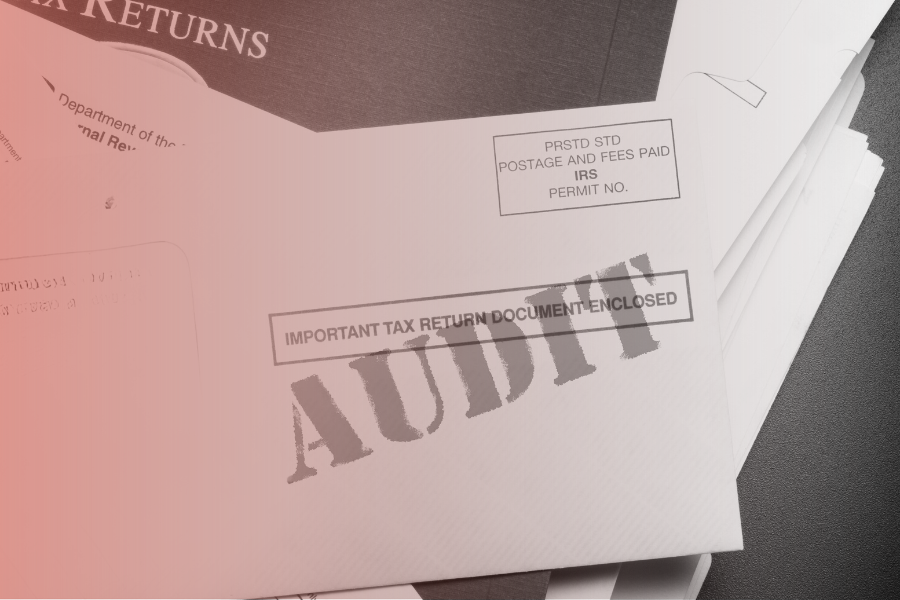How Coverage Foreign Inheritance to IRS Works: Trick Insights and Standards for Tax Coverage
Steering the complexities of reporting international inheritance to the IRS can be challenging. There specify limits and types that people must comprehend to assure compliance. Inheritances surpassing $100,000 from non-resident aliens require particular interest. Failing to comply with these guidelines may cause penalties. Comprehending the subtleties of tax obligation implications and needed documents is important. The following sections will certainly describe essential understandings and guidelines for effective tax reporting.
Recognizing Foreign Inheritance and Its Tax Ramifications
It is vital for them to comprehend the associated tax obligation effects when individuals get an inheritance from abroad. In the United States, acquired assets are usually not subject to revenue tax, yet the estate from which the inheritance comes might have specific tax obligation obligations. International inheritances can make complex issues, as various nations have differing guidelines concerning estate taxes. People need to understand that while they may not owe taxes on the inheritance itself, they may be accountable for reporting the worth of the foreign possession to the Internal Revenue Solution (INTERNAL REVENUE SERVICE) In addition, currency exchange rates and evaluation approaches can impact the reported worth of the inheritance. Recognizing these elements is vital to avoid unanticipated tax obligation responsibilities. Looking for support from a tax specialist seasoned in global inheritance laws can offer clearness and assurance conformity with both U.S. and international tax demands.

Coverage Demands for Inherited Foreign Assets
The reporting needs for inherited foreign assets involve details thresholds and limitations that taxpayers must comprehend. Compliance with IRS laws necessitates the ideal tax obligation types and recognition of potential fines for failing to report. Recognizing these elements is essential for people receiving foreign inheritances to avoid lawful problems.
Coverage Thresholds and Limits
While going across the complexities of acquired international possessions, understanding the reporting limits and limitations established by the IRS is crucial for conformity. The IRS mandates that U. foreign gift tax reporting requirements.S. taxpayers report international inheritances exceeding $100,000 from foreign estates or non-resident aliens. This restriction puts on the total worth of the inheritance, encompassing all possessions received, such as cash money, real estate, and financial investments. Additionally, any type of international economic accounts totaling over $10,000 have to be reported on the Foreign Savings Account Record (FBAR) Failure to follow these thresholds can cause significant penalties. It is important for taxpayers to accurately analyze the value of inherited international assets to ensure certified and prompt reporting to the IRS
Tax Obligation Kinds Review

Penalties for Non-Compliance
Failure to adhere to reporting requirements for acquired international possessions can lead to substantial charges for united state taxpayers. The IRS implements rigorous laws regarding the disclosure of foreign inheritances, and failings can bring about fines that are frequently substantial. For example, taxpayers may encounter a charge of as much as $10,000 for falling short to submit Form 3520, which reports foreign presents and inheritances exceeding $100,000. Furthermore, proceeded non-compliance can intensify penalties, possibly reaching up to 35% of the value of the inherited possession. In addition, failing to record can additionally set off extra serious repercussions, consisting of criminal charges for willful neglect. Taxpayers should remain cautious to stay clear of these effects by making sure timely and accurate reporting of international inheritances.
Trick Kinds and Paperwork Needed
When a specific receives an international inheritance, it is vital to understand the crucial types and documentation needed for conformity with IRS regulations. The key form needed is the IRS Kind 3520, which need to be submitted to report the invoice of the foreign inheritance. This form provides detailed details concerning the inheritance, including the identification of the foreign decedent and the worth of the acquired assets.
In addition, if the inherited home includes international checking account or other economic assets, the individual may require to file the Foreign Checking account Record (FBAR), FinCEN Type 114, if the complete value exceeds $10,000. Correct documents, such as the will or estate files from the foreign jurisdiction, must additionally be collected to corroborate the inheritance claim. Maintaining detailed records of all deals and interactions connected to the inheritance is vital for precise reporting and conformity with IRS requirements.
Tax Treaties and Their Effect On Estate Tax

Recognizing the effects of tax obligation treaties is essential for individuals receiving foreign inheritances, as these contracts can considerably affect the tax obligation commitments connected to acquired properties. foreign gift tax reporting requirements. Tax treaties between nations usually offer particular standards on exactly how inheritances are tired, which can lead to minimized tax obligation responsibilities or exceptions. As an example, a treaty may state that particular sorts of inheritances are not subject to this link tax in the recipient's nation, or it may allow for debts versus taxes paid abroad
People should acquaint themselves with the details provisions of pertinent treaties, as they can vary substantially. This expertise aids assure conformity with tax guidelines while taking full advantage of potential advantages. Additionally, comprehending how treaties interact with domestic legislations is necessary to accurately report foreign inheritances to the IRS. Consulting with a tax obligation specialist fluent in worldwide tax obligation law may be advisable to browse these intricate regulations successfully.
Usual Blunders to Avoid When Coverage Inheritance
Although many people believe they can conveniently browse the complexities of reporting international inheritances, they often neglect important details that can result in considerable mistakes. One typical mistake is falling short to report the inheritance in the correct tax obligation year, which can lead to charges. In addition, some people disregard to transform international possessions right into U.S. bucks at the suitable exchange rate, subsequently misstating their worth. One more frequent oversight includes misunderstanding the reporting limits; individuals may presume they do not need to report if the inheritance is listed below a specific amount, which is inaccurate. Furthermore, misclassifying the sort of inheritance-- such as treating a gift as an inheritance-- can make complex reporting commitments. People typically stop working to maintain detailed paperwork, which is vital for verifying insurance claims and avoiding audits. Understanding of these risks can greatly enhance conformity and decrease the danger of financial effects.
Seeking Professional Assistance for Facility Situations
Maneuvering the intricacies of reporting international inheritances can be frightening, particularly for those with intricate financial scenarios. People dealing with problems such as several foreign properties, differing tax obligation ramifications across jurisdictions, or elaborate family members characteristics may gain from professional assistance. Tax obligation specialists specializing in worldwide tax legislation can supply vital understandings right into the subtleties of IRS regulations, making certain conformity while decreasing possible liabilities.
Involving a cpa (CERTIFIED PUBLIC ACCOUNTANT) or tax attorney with experience in foreign inheritance can assist make clear reporting demands, identify applicable exemptions, and plan finest tax strategies. Additionally, they can assist in completing essential forms, continue reading this such as Type 3520, and handling any additional disclosure demands.
Inevitably, looking for professional assistance can relieve tension and improve understanding, allowing people to concentrate on the emotional elements of inheritance rather than ending up being bewildered by tax obligation intricacies. This aggressive strategy can result in much more beneficial outcomes in the future.
Frequently Asked Questions
Do I Need to Report Foreign Inheritance if I'm Not a united state Person?
Non-U.S. residents usually do not require to report international inheritances to the IRS unless they have particular links to U.S. tax laws. It's a good idea to get in touch with a tax obligation expert to clear up individual conditions.
Are There Penalties for Falling Short to Record Foreign Inheritance?
Yes, there are charges for failing to report international inheritance. People might deal with significant fines, and the IRS can enforce added repercussions for non-compliance, potentially influencing future tax obligation filings and economic standing.
Can I Subtract Costs Connected to Handling Inherited Foreign Possessions?
Expenses associated to handling acquired foreign possessions are generally not deductible for tax obligation objectives. Nevertheless, people should get in touch with a tax expert for guidance tailored to their specific scenarios and potential exemptions that may use.
How Does Foreign Currency Affect the Value of My Inheritance Record?
International currency variations can significantly affect the reported value of an inheritance. When converting to U.S - penalties for not filing Form 3520. bucks, the currency exchange rate at the time of inheritance and reporting determines the final reported value for tax obligation purposes
What Takes place if My Foreign Inheritance Is Kept In a Trust?
If a foreign inheritance is kept in a trust fund, it may make complex coverage demands. The count on's framework and tax ramifications should be assessed, as beneficiaries can face differing tax obligation commitments based upon territory and trust type.
The IRS requireds that U.S. taxpayers report international inheritances surpassing $100,000 from international estates or non-resident aliens. visit this website In addition, any foreign economic accounts completing over $10,000 should be reported on the Foreign Financial Institution Account Report (FBAR) Individuals inheriting foreign possessions must normally report these on Type 8938 (Declaration of Specified Foreign Financial Properties), if the complete worth exceeds specific thresholds. Depending on the nature of the inheritance, various other types such as Kind 3520 (Annual Return To Record Deals With Foreign Trusts and Receipt of Specific Foreign Gifts) may additionally be necessary. In addition, if the inherited residential or commercial property consists of international financial institution accounts or other monetary properties, the person may require to submit the Foreign Financial institution Account Report (FBAR), FinCEN Kind 114, if the complete worth goes beyond $10,000.